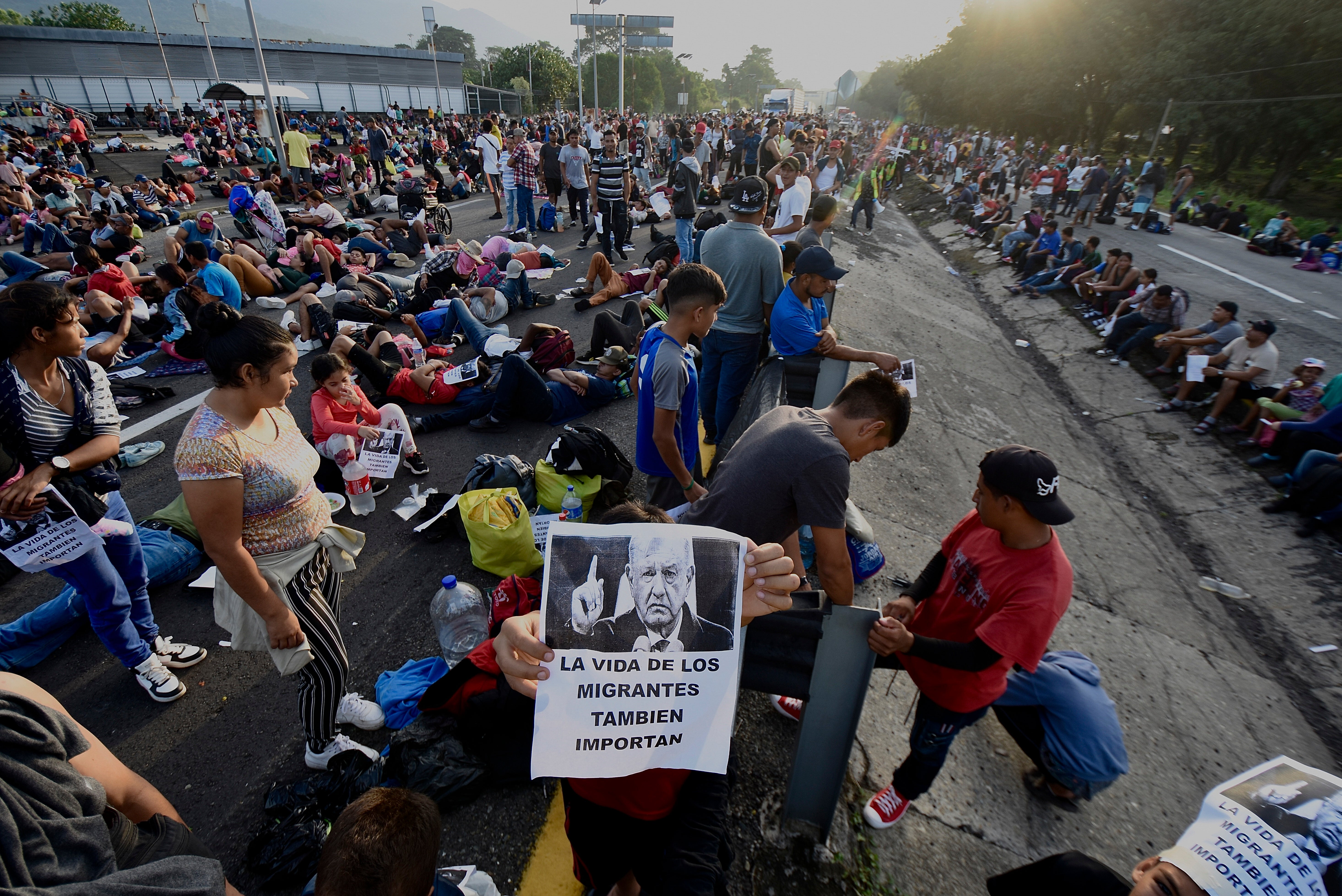Caravan of 3,000 migrants blocks highway in southern Mexico
About 3,000 migrants from Central America, Venezuela, Cuba and Haiti have blocked traffic on one of Mexico’s main southern highways to demand transit or exit visas to reach the U.S. border

Your support helps us to tell the story
From reproductive rights to climate change to Big Tech, The Independent is on the ground when the story is developing. Whether it's investigating the financials of Elon Musk's pro-Trump PAC or producing our latest documentary, 'The A Word', which shines a light on the American women fighting for reproductive rights, we know how important it is to parse out the facts from the messaging.
At such a critical moment in US history, we need reporters on the ground. Your donation allows us to keep sending journalists to speak to both sides of the story.
The Independent is trusted by Americans across the entire political spectrum. And unlike many other quality news outlets, we choose not to lock Americans out of our reporting and analysis with paywalls. We believe quality journalism should be available to everyone, paid for by those who can afford it.
Your support makes all the difference.About 3,000 migrants from Central America, Venezuela, Cuba and Haiti on Wednesday blocked traffic on one of Mexico's main southern highways to demand transit or exit visas to reach the U.S. border.
The caravan of migrants set out on foot from the city of Tapachula, near the Guatemalan border, on Oct. 30, walking north toward the U.S.
The contingent, including many women and children, later stopped walking at Huixtla, another town in the southern state of Chiapas, where they tried to get temporary travel documents to cross Mexico.
On Wednesday, the migrants blocked highway inspection booths just outside Huixtla.
Activist Irineo Mújica, one of the organizers of the march, said the blockade would continue, because migrants are afraid of criminals, smugglers and extortionists who could prey on them if they continue walking. Many migrants would also prefer to take buses, but are often prevented from doing so if they don't have papers.
“We know we are causing discomfort for Mexicans, and we apologize,” Mújica said. “But the drug cartels are kidnapping us, killing us.”
Honduran migrant Herson Fernández was traveling with his wife and three children; sobbing, he said they had run out of money.
“They (authorities) won't give us an answer, they won't give us documents,” Fernández said. “The idea is to get to the United States because there is a better future for the children, the truth is that we are doing it for them.”
But the Mexican government's Refugee Aid Commission issued a statement late Tuesday pointing out that it does not issue transit visas.
The current caravan was among the largest since June 2022. Migrant caravans in 2018 and 2019 drew far greater attention. But with as many as 10,000 migrants showing up at the U.S. border in recent weeks, the Oct. 30 march is now just a drop in the bucket.
In the past Mexico’s tactic was largely to wait for the marchers to get tired, and then offer them rides back to their home countries or to smaller, alternative processing centers.
The southwestern border of the U.S. has struggled to cope with increasing numbers of migrants from South America who move quickly through the Darien Gap between Colombia and Panama before heading north. By September, 420,000 migrants, aided by Colombian smugglers, had passed through the gap in the year to date, Panamanian figures showed.
——— Follow AP’s coverage of global migration at https://apnews.com/hub/migration